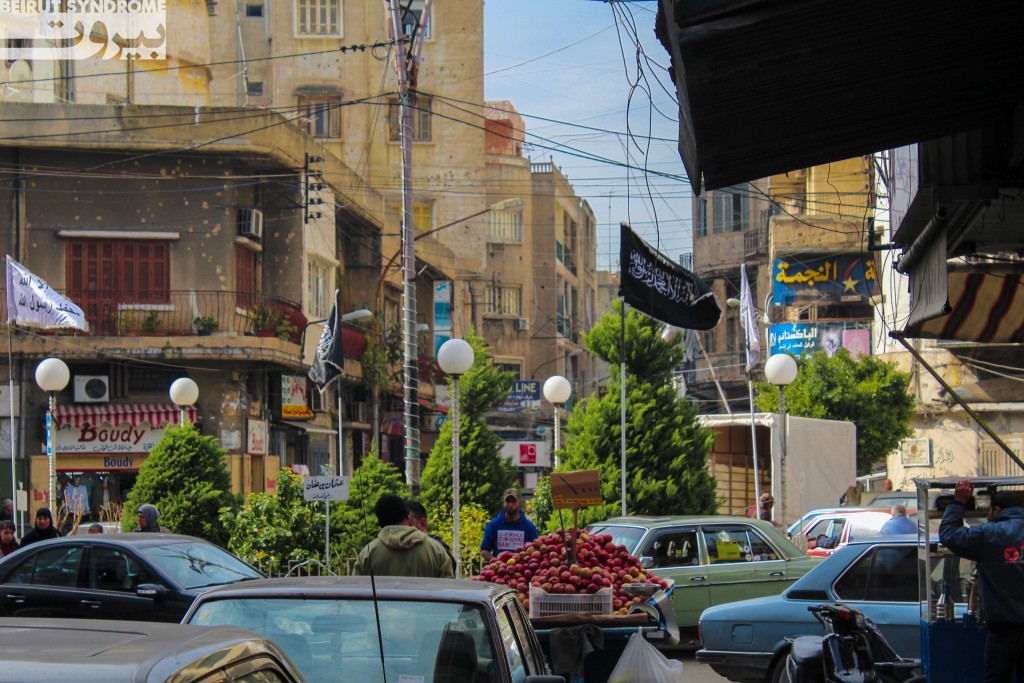
A teenager in Northern Lebanon joined Al Qaeda’s Jabhat Al Nusra at only 17, after his uncle and cousin encouraged him. He later joined ISIS, and by 19 ended up in jail for killing a Lebanese soldier. Social worker Nancy Yamout describes him as “skinny and petit”, resembling a “high school freshman or sophomore”.
“You’d look at him and think ‘there is no way he’d ever do such a thing.’”
Social worker Nancy Yamout started her work in 2009. “We were trying to push for a law that would reduce the level of punishment for those charged with misdemeanors,” says Yamout, who was hoping that those charged would only have community service sentences. The terrible prison conditions in Lebanon inspired her and her sister [Maya Yamout] to establish Rescue Me in 2011. They say they “wanted to find out why they ended up in jail and what played a role in leading them to a life that would put them there in the first place.” This is a problem that also impacts them personally, as two of Maya Yamout’s former classmates have joined armed groups. One of them joined the armed wing of a political group, while the other joined ISIS.
The case of the absent father
Nancy Yamout doesn’t believe that socioeconomics is the primary factor that leads people to join gangs, terrorist organizations, and other armed groups. “Almost all of them lack a father or father figure,” says Yamout, “that is the most significant point.” She elaborates on the situation of many of the people she spoke to:
“They actually tend to have decent or normal relations with their mothers. Either their father is dead, or is absent due to working abroad or other reasons, or mistreats their children (hits their kids to ‘discipline’ them or ‘man them up’).”
However, she doesn’t exclude the role of poor socioeconomic conditions; it’s just not the primary case.
“It’s true [that socioeconomic conditions play a role]. But if it was purely based on that, then all the poor people would join [armed organizations] to live a better life.”
Tech-savvy recruitment methods
Armed groups and terrorist organizations are becoming more tech-savvy. On a grander scale, we’ve seen the heavily produced execution videos and documentaries by ISIS, as well as their social media presence and distribution of online magazines. But modern technology, particularly mobile technology, is being used on a micro level as well.
“There is recruitment over the internet [in Lebanon],” says Nancy Yamout, who has also developed an online safety program to make sure that youth in at-risk areas use the internet in a safe way. Yamout explains how many people use messaging apps that aren’t popular on a global scale, and are often unmonitored.
“We generally would use Facebook and WhatsApp, but you’d find them using programs like Google Plus, Badoo, and imo. They use voice messages mostly, especially to cater to all people [both literate and illiterate].” According to Yamout, many identify the internet as simple the instant messaging app.
But how do they get in touch with these people in the first place? Yamout believes we shouldn’t doubt the recruiters’ intelligence at all, saying, “These people aren’t stupid” before elaborating on one of their effective recruiting methods:
You have people who scan the area, including mosques. They figure out the young men and women who they believe have the potential to join. After that, they look up their numbers using mobile apps like True Caller and Number Book.
When these men message young women, they often express their interest in marrying them. Given their poor socioeconomic situation, the young woman would be eventually agree to meet with him, especially as the man would appear to come from a good background because he would express how he wants a faithful and honest woman to be his spouse.
The same happens with young boys. You often have women who message them, expressing their interest in them or coming from the approach of a motherly figure. They of course reiterate their standards of honest and faithful men.
Yamout says that this recruitment method has been taking place in several areas in Lebanon.
Prisons in Lebanon as a breeding ground
Lebanon isn’t known for its decent prison conditions. From time to time, reports of riots, beatings, and drug smuggling would surface in Lebanese prisons, especially in Roumieh. Located northeast of Beirut, Roumieh prison is Lebanon’s largest prison, holding over 5,000 male, female, and juvenile detainees. Despite some improvements made, both Nancy Yamout, and various human rights organizations believe the overcrowded prison is nowhere near meeting international standards. Yamout frequently visits the prison, and has spoken to many prisoners.
“There used to be around eight inmates per cell, though that has decreased to four. Even though it’s better than what it was, the conditions are still terrible. The prisoners have nothing to do. They have a TV with local channels, and that’s about it. [Rescue Me] brought over 284 novels to the prisons.”
According to human rights organization Alkarama, many juveniles share cells with older people who have committed severe crimes. Moreover, despite ratifying the Optional Protocol to the Convention Against Torture in 2009, Lebanon has not set up an “independent system for monitoring and visiting all places of detention.”
What happened to the 17 year-old boy who was mentioned earlier? Now at 19 years old, he and Yamout have been regularly meeting. Determined to change for the better, he reached out to her to better himself.
This article was originally published by Beirut Syndrome on April 19th, 2016.










